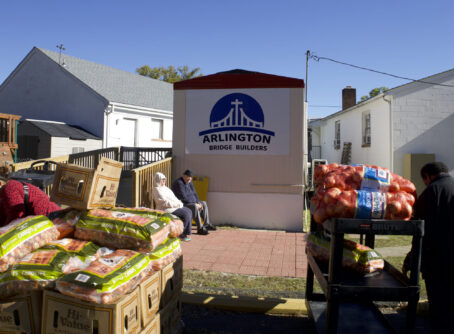A new website, ReligiousEquality.net, catalogs a range of unconstitutional provisions in state laws and regulations that exclude religious schools and other faith-based organizations from equal access to government funding. The site features an interactive map linked to the descriptions of the instances of anti-religion discrimination. Clicking on a state gives access to listings of problematic rules affecting schools, social services, health services, and more. The goal is transparency—and reform! Anyone who cares about respect for constitutional protections for religious freedom or for the flourishing of services offered by houses of worship and other faith-based organizations can easily locate mistaken statutory and regulatory provisions in their state and press for change.
The ReligiousEquality.net website is a project of the EPIC Coalition and others. The EPIC Coalition is a multifaith collaboration that promotes private and public support for every kind of educational option that will help students to succeed, whatever their religious community, special needs, or the resources of their families. Stephanie Summers, CEO of the Center for Public Justice, mothership of the Institutional Religious Freedom Alliance, is on EPIC’s board.
The illegitimate restrictions documented by the website are not necessarily ill-intentioned. Not that many decades ago, the U.S. Supreme Court, in its Lemon ruling and other decisions, did require government discrimination against religious schools, hospitals, and charities. Even though such faith-based organizations are significant ways that many Americans exercise their religions, and the First Amendment requires government not to restrict religious freedom, the Court held that the no-establishment clause of that amendment prohibits government “aid to religion.” In response, federal, state, and local government authorities, as they expanded their practice of awarding government funds to private organizations to provide needed social, educational, and health services, wrote into laws and regulations various provisions to exclude private organizations deemed to be “sectarian” or “too religious.”
However, over several decades, the U.S. Supreme Court has revised—reversed—its interpretation of the religious clauses of the First Amendment. Through a series of recent rulings, most recently Carson v. Makin, in which it struck down Maine’s policy to exclude religious schools from its tuition-reimbursement program, the Court has strongly held that it is unconstitutional for government to discriminate against faith-based organizations when it decides which private organizations to support. However, although these rulings make unconstitutional the restrictions put into laws and into regulations in response to the superseded “no-aid” interpretation, those restrictions often remain on the books—overlooked or maintained by government agencies not keen on the new equal treatment reading of the Constitution.
The new website provides an easy way for legislators and government officials, and citizens and faith-based organizations, to see where the now-illegitimate restrictions reside. For example, the scholarship program in Alabama—a Bible Belt state!—that helps students attend private colleges specifies that its funds can only support secular education. To be sure, because such restrictions are unconstitutional, they must be set aside—if known and challenged. Unchallenged, such ghost restrictions can result in the very real harm of shutting faith-based organizations out of public programs that would provide them and their students or patients significant financial help.
The website is easy to use and very instructive. May it result in the abolition of state rules that discriminate against religious organizations and religious exercise.
Two other websites explore other aspects of institutional religious freedom in U.S. states.
Religious Liberty in the States (religiouslibertyinthestates.com) features annually updated information comparing how well U.S. states protect individual and institutional religious freedom in their laws.
Napa Legal Institute (napalegalinstitute.org) provides a Faith and Freedom index that compares how well U.S. states protect the religious freedom of faith-based organizations and the regulatory freedom of nonprofits in general.
Stanley Carlson-Thies is the Founder and Senior Director of the Institutional Religious Freedom Alliance (IRFA), a program of the Center for Public Justice.



